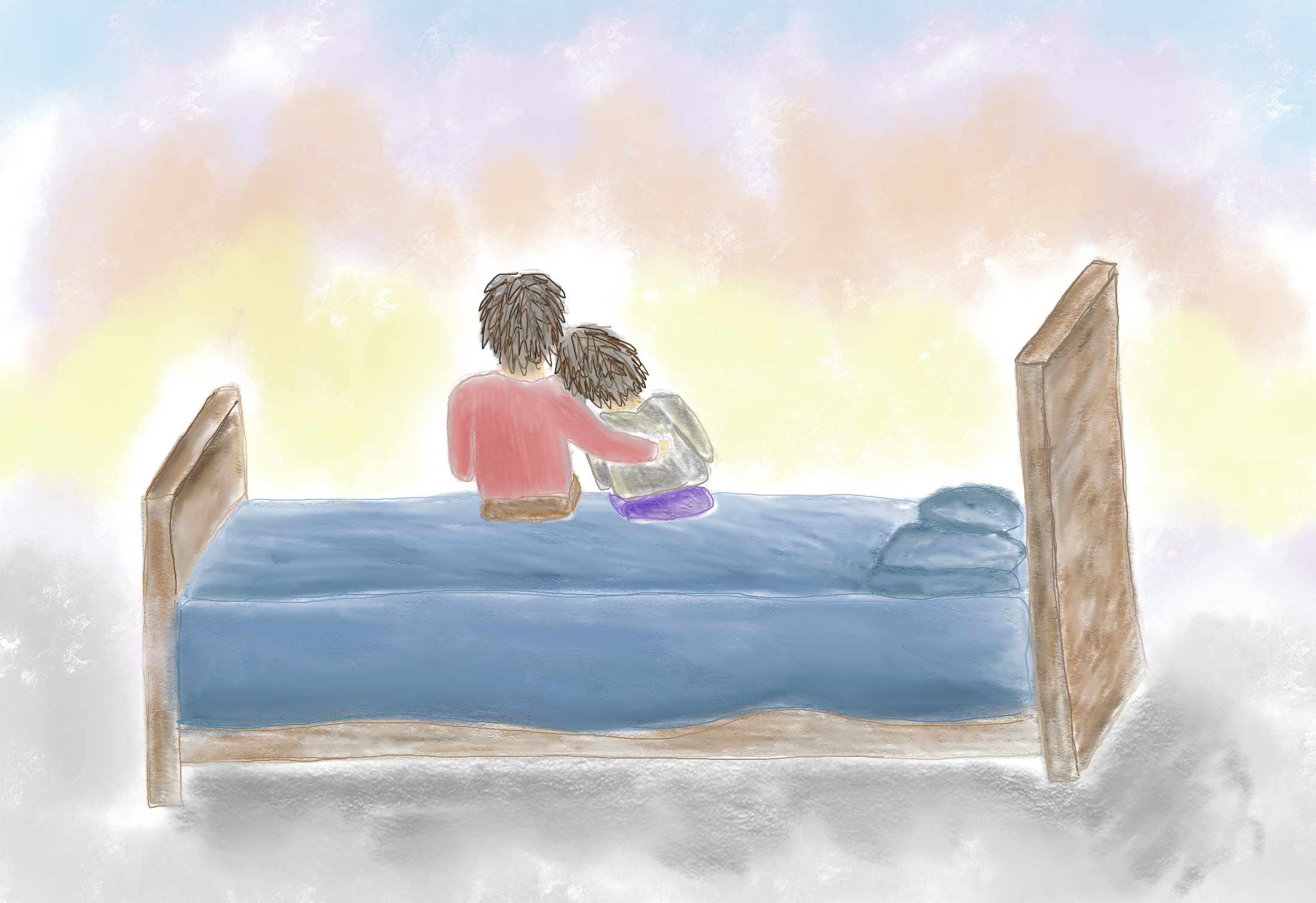My dad’s perfect daughter is misgendered
April 1, 2022
 This
piece represents the opinion of the author
.
This
piece represents the opinion of the author
.
 Alyssa Bommer
Alyssa BommerWe are the children of loving, emotionally abusive parents who could not break the cycle of abuse. We are the children of immigrant families who constantly question the meaning of love and what the dictionary definition of emotional abuse is.
The first time I ever saw my father cry was when I was 10 years old in a hotel room in Turkey. We were in a rural city in the middle of nowhere, and for two days my dad had carried two suitcases containing all we had in the world, with my little sister on his left shoulder and the burden of the decision he and my mother made to leave the place they were born for the sake of our future on his right. Because the five of us shared the same hotel room, with its molding walls and creaking beds, I could hear my dad’s whimpers.
Every time I want to get angry at him, I remember that moment.
My first memory of my father is not one of games and laughter, but instead one of dark rooms and loud thuds. When I was a kid, I quickly learned how to fear him more than love him. For years, I was—and still am—angry at myself for not first remembering all the times he carried me on his back and bought me my dream set of Legos. I blamed myself for remembering how I learned to swallow my sobs so that he didn’t get even angrier at me.
I learned to live with that anger. I learned to paint over the dark nights with an opaque coat of white so that I could redraw the good memories of him so that I could never allow myself to forget them.
Perhaps the harder thing for my dad than that night in Turkey was letting his children grow up in America, a place he believed would change them. But wasn’t that what he wanted for them? To take a sip of the American dream and quench their thirst because he wasn’t able to do it? I could see my dad’s dreams and ambitions crumbling before him when he found out I was transgender last year. It was one of the rare moments in which I truly looked into his eyes and could see his fear, his anger, his sadness and what broke me the most—his disappointment. What he had feared all of those years had become a reality: America had turned his “daughter” into someone perverted.
I spent many nights ruminating over the scars my dad left on my soul as a kid and contemplating the new ones he had made. I contemplated the fresh scars he was carefully carving, twisting the knife with words guised under the pretext of loving advice, words that made me question my place on this Earth. On those nights, I desperately tried hating him, but each night, I failed. How could I hate someone who left his life behind so I could have a better one? How could I hate someone working three jobs to support his family, two of which he had no experience with? How could I hate someone for trying his best to be the opposite of what his parents were, even if he was failing to do so?
I envy white people for being able to so easily tell me to hate my father, to tell me that everything was his fault and that he didn’t deserve my love. I wish it were that easy. I wish I could hate my dad so that it didn’t hurt as much when I wasn’t able to hug him tight and let my soul be filled with trust, as myself and not the version of me he has created. What white Americans have to understand is that we immigrant kids have a much more complex relationship with our parents, one that doesn’t fit with their binary definitions.
However, one answer I found after long nights of monotonous journaling is that I do love my immigrant father.
Yusur Jasim is a member of the Class of 2025.

Comments
Before submitting a comment, please review our comment policy. Some key points from the policy: